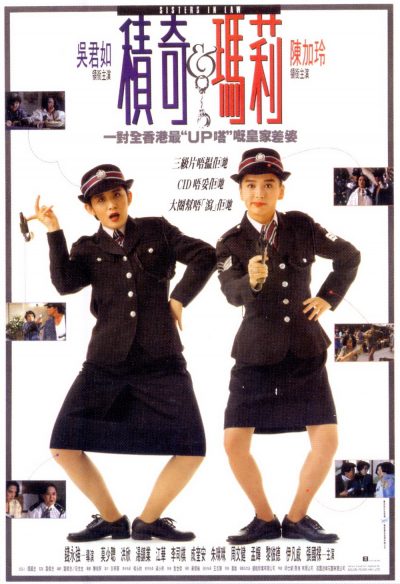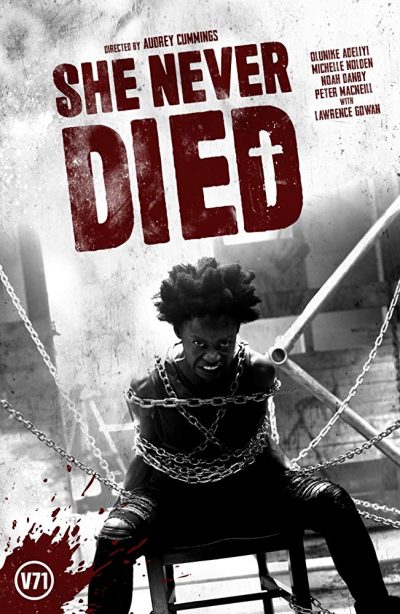Literary rating: ★★★
Kick-butt quotient: ☆☆☆
 The first volume in the Imp series, A Demon Bound, was one of the most entertaining books I’ve read of late. It told the story of Samantha Martin, the human vessel occupied by a demon “who has chosen to spend her life among us mortals, rather than in the underworld… largely because it’s more fun up here.” I was thus stoked to read the next two entries in the series, with Sam’s further adventures. She’d ended the series having been “bound” to an angel, Gregory, and in the subsequent parts, this is now causing issues for both of them. He is getting flak from his colleagues for his association with her, while she is experiencing unfamiliar emotions, such as loyalty and kindness.
The first volume in the Imp series, A Demon Bound, was one of the most entertaining books I’ve read of late. It told the story of Samantha Martin, the human vessel occupied by a demon “who has chosen to spend her life among us mortals, rather than in the underworld… largely because it’s more fun up here.” I was thus stoked to read the next two entries in the series, with Sam’s further adventures. She’d ended the series having been “bound” to an angel, Gregory, and in the subsequent parts, this is now causing issues for both of them. He is getting flak from his colleagues for his association with her, while she is experiencing unfamiliar emotions, such as loyalty and kindness.
It makes sense to cover both of these as one volume, as they combine to represent a significant story arc. The main thread in that is her hell-spawned brother, Dar, has got in the bad graces of upper-tier demon, Haagenti. Unfortunately, that escalates into Haagenti putting out an infernal hit on Sam – as well as those she cares about, in particular her all-too human boyfriend, Wyatt. To deal with that, she ends up taking on a job for an elven lord, locating the offspring of an unfortunate liaison between an elf and a succubus – the latter just happening to be Sam’s foster sister, Leethu.
The main problem, I felt, was Dunbar over-stuffed these books with ideas. If she’d stuck to the basic concept above, and developed it properly, it might have worked a bit better. Instead, there are any number of threads which feel undercooked, to a greater or less degree. For example, the serial killer targetting Sam’s slum tenants, or the teenage boys who managed to summon her, courtesy of a ritual they found on the Internet. The latter feels especially rife with potential, sadly never realized. Or the heavenly bureaucracy in which Sam gets entangled, complete with committee meetings and detailed reports. I’d rather have heard more about these fascinating and amusing ideas, than the detailed discussion concerning the breeding habits of elves we get.
Fortunately, the heroine remains as wonderfully twisted a character as ever. Though I must confess, the angel influence is a little worrying, given what made Sam so deliciously bad was her complete lack of scruples. For when you are all but immortal, you can afford to push other entity’s buttons – such as when she manages to goad another angel into an all-out brawl during one of those committee meetings. There may have been a stale Danish pastry involved. If this sardonic edge becomes dulled due to the angelic influence, it would be a real shame, since it’s one of the main things which makes Sam stand out in the field of literary action-heroines. We’ll see what happens as we go forward in the series.
Author: Debra Dunbar
Publisher: Volumes 1-3 are available as an omnibus from Anessa Books, available through Amazon, as an e-book
Books 1-3 of 10 in the Imp series.






 This is exactly the kind of “mismatched cop” film in which you’d expect to see Melissa McCarthy, if it was ever remade by Hollywood. Though since two decades later, McCarthy would star in
This is exactly the kind of “mismatched cop” film in which you’d expect to see Melissa McCarthy, if it was ever remade by Hollywood. Though since two decades later, McCarthy would star in  I should probably start by providing some background the film omits – likely because the intended Indian audience were well aware of it. In 2012, a notorious gang-rape took place in Delhi, the victim subsequently dying. Of the six attackers, four were sentenced to death and one committed suicide in prison – but the sixth, being a juvenile, could only receive a maximum sentence of three years. This loophole appalled many, including two journalists depicted in this film, Jyothi (Nivedhitha) and Divya (Karagada), who begin a campaign to revise the law.
I should probably start by providing some background the film omits – likely because the intended Indian audience were well aware of it. In 2012, a notorious gang-rape took place in Delhi, the victim subsequently dying. Of the six attackers, four were sentenced to death and one committed suicide in prison – but the sixth, being a juvenile, could only receive a maximum sentence of three years. This loophole appalled many, including two journalists depicted in this film, Jyothi (Nivedhitha) and Divya (Karagada), who begin a campaign to revise the law.
 This one may be the origin of the meme, “After the apocalypse, food, water and gasoline are in short supply – but hair-spray will still be plentiful.” For there’s no denying the absolute silliness of this slab of post-apocalyptic nonsense. But it’s still imaginative and energetic enough that my interest was largely sustained. We’re apparently long enough after World War III for it all to have become the stuff of almost-forgotten legend. In the aftermath, the world is now occupied by roaming bands, mostly of men. However, certain women are gifted with special powers, and they have banded together into the titular group, under their reverend mother, and are feared by most as witches.
This one may be the origin of the meme, “After the apocalypse, food, water and gasoline are in short supply – but hair-spray will still be plentiful.” For there’s no denying the absolute silliness of this slab of post-apocalyptic nonsense. But it’s still imaginative and energetic enough that my interest was largely sustained. We’re apparently long enough after World War III for it all to have become the stuff of almost-forgotten legend. In the aftermath, the world is now occupied by roaming bands, mostly of men. However, certain women are gifted with special powers, and they have banded together into the titular group, under their reverend mother, and are feared by most as witches.
 This is neither a prequel nor a sequel to He Never Died, but is clearly related, and takes place in the same universe. Like its predecessor, it was written by Jason Krawczyk, who hands the directorial reins over to Cummings for this. And it probably works better as a result. I tend to think having a separate writer and director allows each to build on the other’s talents, while countering the weaknesses. In particular, He, which starred Henry Rollins, didn’t have quite enough plot to sustain it. That isn’t an issue here, resulting in improved pacing. Combine this with the ultimate “give no damns” performance at its core, and you’ve got one of the best action heroine films of 2019.
This is neither a prequel nor a sequel to He Never Died, but is clearly related, and takes place in the same universe. Like its predecessor, it was written by Jason Krawczyk, who hands the directorial reins over to Cummings for this. And it probably works better as a result. I tend to think having a separate writer and director allows each to build on the other’s talents, while countering the weaknesses. In particular, He, which starred Henry Rollins, didn’t have quite enough plot to sustain it. That isn’t an issue here, resulting in improved pacing. Combine this with the ultimate “give no damns” performance at its core, and you’ve got one of the best action heroine films of 2019.
 We know very well that, on low-budget films, people have to wear many hats. Hell, my IMDb entry began when a film I was supposed to be helping my wife produce, had an actor drop out. You can only respect those who can turn their hands to multiple jobs. And, yet… There’s a point at which it become self-defeating, because nobody can be
We know very well that, on low-budget films, people have to wear many hats. Hell, my IMDb entry began when a film I was supposed to be helping my wife produce, had an actor drop out. You can only respect those who can turn their hands to multiple jobs. And, yet… There’s a point at which it become self-defeating, because nobody can be  Nova is a bounty hunter, smuggler and generally survivor of life in the grey areas of legality. In need of a quick buck to fix her space-ship, she takes on the hunt for a couple of escaped fugitives. She locates them working in an archaeological dig being run by the Confederacy – which is odd, since the planet in question was supposedly never inhabited. An unfortunate translation error ends up helping unleash a long-buried race of reptiloid extra-terrestrials, the Ancients – a species with both the inclination and the ability to wage genocidal war on the rest of the galaxy. And Nova is the only one left who can stop them.
Nova is a bounty hunter, smuggler and generally survivor of life in the grey areas of legality. In need of a quick buck to fix her space-ship, she takes on the hunt for a couple of escaped fugitives. She locates them working in an archaeological dig being run by the Confederacy – which is odd, since the planet in question was supposedly never inhabited. An unfortunate translation error ends up helping unleash a long-buried race of reptiloid extra-terrestrials, the Ancients – a species with both the inclination and the ability to wage genocidal war on the rest of the galaxy. And Nova is the only one left who can stop them. When you think of drugs, terrorism and South America, Colombia probably comes first to mind, thanks to Pablo Escobar and his cartel pals. However, it’s far from the only country in the region with a troubled history. Peru has had its fair share of strife: it produces virtually as much cocaine, and the Marxist guerillas of the Shining Path movement fought a long, bloody war against the government through the eighties. It’s during this time that the novel begins. Young girl Nina has her father killed by soldiers hunting the guerillas in her rural village, and her brother Miguel vanishes to join the Shining Path.
When you think of drugs, terrorism and South America, Colombia probably comes first to mind, thanks to Pablo Escobar and his cartel pals. However, it’s far from the only country in the region with a troubled history. Peru has had its fair share of strife: it produces virtually as much cocaine, and the Marxist guerillas of the Shining Path movement fought a long, bloody war against the government through the eighties. It’s during this time that the novel begins. Young girl Nina has her father killed by soldiers hunting the guerillas in her rural village, and her brother Miguel vanishes to join the Shining Path.